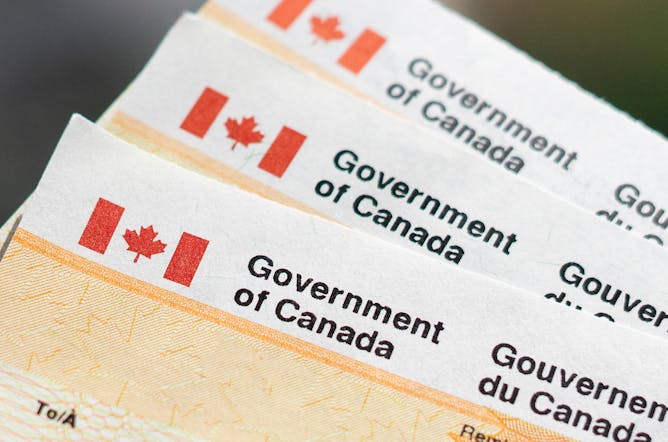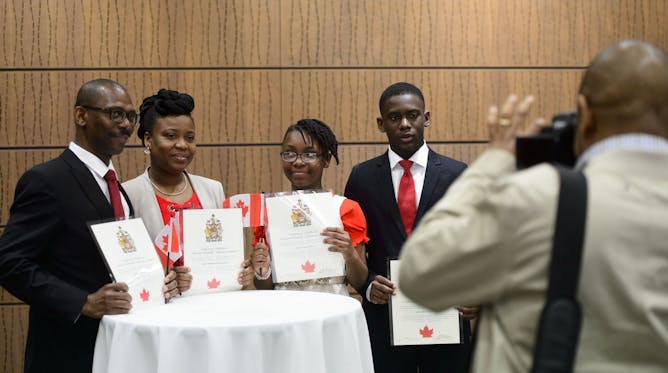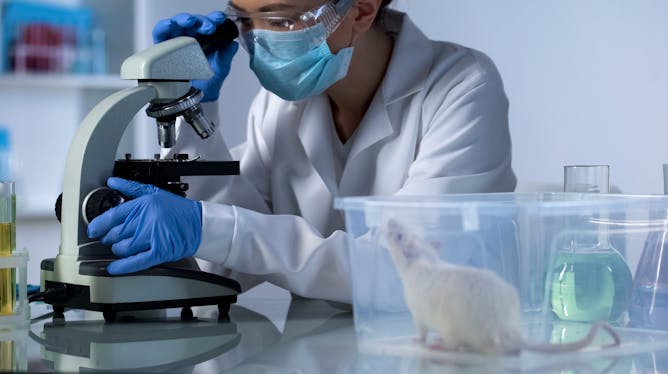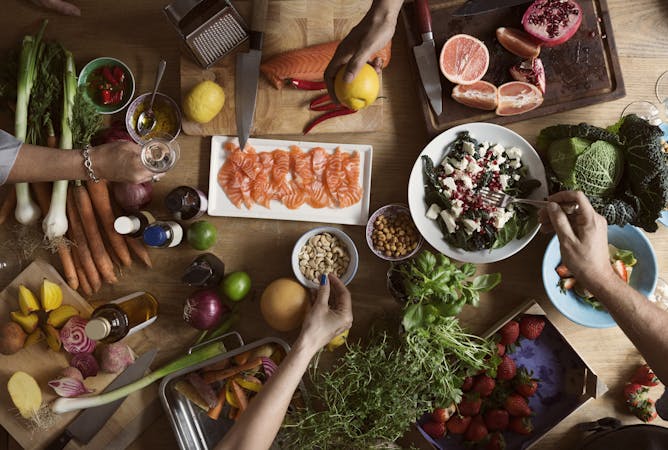|
Support for basic income has been steadily increasing over the years, to the point where the majority of Canadians now support it. Since this is the case, why hasn’t the government implemented it yet? The answer may lie in some of the myths opposing basic income.
Today in The Conversation Canada, Jiaying Zhao and Lorne Whitehead from the University of British Columbia debunk some of the common myths surrounding basic income. They argue that, rather than being unfair, complicated and expensive, basic income can be fair, simple and affordable. They point to existing research that supports basic income as a fiscally-responsible way to provide individuals with stability, safety and security.
Zhao and Whitehead make the case for basic income to be implemented as part of a nationwide program to reduce poverty and enable all Canadian citizens and residents to thrive. They write: “Poverty touches us all — it is everyone’s tragedy, which is absurd because poverty can be affordably reduced.”
Also today:
All the best.
|

|
Eleni Vlahiotis
Editor
|
|

With careful planning, a basic income system could be designed to be simple, adaptable, reliable and fair.
(Shutterstock)
Jiaying Zhao, University of British Columbia; Lorne Whitehead, University of British Columbia
Basic income should form part of a practical comprehensive plan for eliminating poverty in Canada.
|

It is possible to grow cells from a skin sample in a Petri dish and transform them into neurons in about a month.
(Camille Pernegre)
Étienne Aumont, Université du Québec à Montréal (UQAM)
Cell cultures have shown promise in representing diseases. The Petri dish is not as different from a sick person as one might think.
|

A Haitian family poses for a photograph after after taking the oath of citizenship on Parliament Hill in 2019.
THE CANADIAN PRESS/Sean Kilpatrick
Stein Monteiro, Toronto Metropolitan University; Nevyn Pillai, Toronto Metropolitan University
Newcomers need settlement services to learn about life in Canada. Settlement agencies need to use online channels and communicate existing online services to help newcomers before they arrive.
|

Influencers like Kim Kardashian, who has 307 million followers on Instagram, need to be aware of problematic engagement.
(Photo by Evan Agostini/Invision/AP)
Samira Farivar, Carleton University; Fang Wang, Wilfrid Laurier University; Ofir Turel, The University of Melbourne
Influencers need to be aware that some of their followers may have unhealthy relationships with social media. Although it contrast with their goals, influencers can help create healthy relationships.
|

Stressful housing conditions affect the physiology of lab mice.
(Shutterstock)
Georgia Mason, University of Guelph; Jessica Cait, University of Guelph
Laboratory mice used in medical research are often kept in housing conditions that cause them to be overweight and stressed, with shorter lifespans.
|

Very few medical societies have public policies about how to deal with their interactions with companies.
(Shutterstock)
Joel Lexchin, York University, Canada
Voluntary medical societies have important roles in professional education and advocacy for doctors and patients, but there is need for transparency about relationships with pharma and health industry.
|
La Conversation Canada
|

L’alimentation peut influencer le programme génétique qui nous façonne.
Maskot via Getty Images
Monica Dus, University of Michigan
Les scientifiques commencent tout juste à décoder les messages génétiques contenus dans nos aliments – et à comprendre comment ils peuvent affecter notre santé.
|
Ukraine Invasion
|
-
Solon Solomon, Brunel University London
The first war crimes charges are being laid against Russian soldiers in Ukraine, but will the architects of the war face justice?
-
Michael Butler, Clark University
The reasons for the prominence of the Ukraine war in the West are many – and include the Ukrainian government’s strategic efforts to tailor presentations of the conflict for Western sensibilities.
-
Ana Andguladze, Université Libre de Bruxelles (ULB)
It is commonplace these days to invoke the fears that Russia’s aggression against Ukraine has awoken in Eastern Europe. With the 2008 invasion still fresh in the minds, the Black Sea nation of Georgia…
|
|
Podcasts
|
-
Daniel Merino, The Conversation
Two ADHD researchers discuss advancements in the diagnosis and treatment of adult ADHD.
|
|
Arts
|
-
Lucy Durán, SOAS, University of London
Gomis was the last surviving founder of Orchestra Baobab, Senegal’s most famous band.
|
|
Health
|
-
Szu Shen Wong, Keele University; Neil Grazier, Keele University
Here’s what to consider when buying anti-ageing skincare products.
|
|
Science + Tech
|
-
Derek Ward-Thompson, University of Central Lancashire
We finally know that Sagittarius A* really exists.
|
|
|
|
| |
| |
| |
| |
|
|